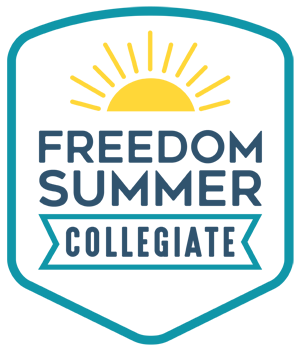Our Teaching Philosophy
1. Students Already think deeply and in complex ways, just by interacting with the world.
"In the mass and in the particle, nature hastens to render account of herself to the mind. Classification begins. To the young mind, every thing is individual, stands by itself. By and by, it finds how to join two things, and see in them one nature; then three, then three thousand; and so, tyrannized over by its own unifying instinct, it goes on tying things together, diminishing anomalies, discovering roots running under ground, whereby contrary and remote things cohere, and flower out from one stem. It presently learns, that, since the dawn of history, there has been a constant accumulation and classifying of facts...
Thus to him, to this school-boy under the bending dome of day, is suggested, that he and it proceed from one root; one is leaf and one is flower; relation, sympathy, stirring in every vein. And what is that Root? Is not that the soul of his soul? — A thought too bold, — a dream too wild."
2. A teacher puts the student face-to-face with the world and with the collection of human knowledge.
"In problem-posing education, people develop their power to perceive critically the way they exist in the world with which and in which they find themselves; they come to see the world not as a static reality, but as a reality in process, in transformation."
"Knowledge had come; light had penetrated the moral dungeon where I dwelt; and behold! . . . It was the everlasting thinking which distressed and tormented me; and yet there was no getting rid of the subject of my thoughts. All nature was redolent of it. Once awakened by the silver trump of knowledge, my spirit was roused to eternal wakefulness."
3. This gives rise to speech . . .
"These were all choice documents to me, and I read them, over and over again, with an interest that was ever increasing, because it was gaining in intelligence; for the more I read them, the better I understood them. The reading of these speeches . . . enabled me to give tongue to many interesting thoughts, which had frequently flashed through my soul, and died for want of utterance."
4. . . . and action.
"Students, as they are increasingly posed with problems relating to themselves in the world and with the world, will feel increasingly challenged and obliged to respond to that challenge. Because they apprehend the challenge as interrelated to other problems within a total context, not as a theoretical question, the resulting comprehension tends to be increasingly critical and thus constantly less alienated. Their response to the challenge evokes new challenges followed by new understandings; and gradually the students come to regard themselves as committed."
"The mind now thinks; now acts, and each fit reproduces the other."
5. The best teaching catalyzes the natural process of the mind at work.
Therefore, we believe that all students have something profound to say about the most important conversations humans have had and are having. Our task is to introduce these conversations and give students the tools to speak and take action. We are committed to this task of empowering students, especially students who might be made to feel disempowered because of who they are or where they come from. And we are committed to connecting students from underserved parts of the country with doctoral candidates at the nation's research universities in order to prove what we already believe: given the opportunity, our students can exceed the highest expectations.
We have high expectations for our teachers too. We believe that they are learning along with their students—we can't wait to see where that learning will take them. Our teachers will go on to teach at universities, write books, create social policy, invent new technology, make discoveries in science and medicine, and transform our understanding of the world. We're proud to think that Freedom Summer Collegiate experience has a hand in their development.
Lastly, we believe in an education that gets results. Our students will be more prepared for the complex texts and intricate problems of college classrooms. Drawing from this experience, they'll be more confident in tackling these challenges: they'll go to college having already excelled in a college-level seminar. We'll build skills, too, in reading and problem-solving, and we'll track growth in these skills quantitatively through ACT-score increases and qualitatively through end-of-course projects. We aim for three levels of outcomes: ACT-score increases that makes students more viable candidates for college, skills in reading and problem-solving that enable college success, and, most importantly, the intangible experience of a mind-blowing seminar, one that transforms students and inspires students to transform the world.

